Aphids on eggplant - how to fight, how to process
Content:
It is quite difficult to grow eggplants in central Russia. This vegetable crop is very thermophilic and is planted through seedlings. Eggplants cannot be tolerated even for a short exposure to low temperatures. But despite all the difficulties that arise during the cultivation of this vegetable, gardeners manage to get a good harvest. The most important thing is to protect the eggplant from the pest in time. These plants can infect such pests as whitefly, spider mites, aphids on eggplants and others.
Aphids are a dangerous insect. It settles on the leaves and stems of the plant, sucks out the cell sap from it, thereby causing irreparable harm to both seedlings and adult plants. If you do not take action, the crop may die completely, as aphid colonies grow very quickly. It is most effective to fight this pest at an early stage, before their number has greatly increased.
Plants in the greenhouse are most often affected. Since it creates optimal conditions for the life of this insect, namely high humidity and temperature. When the first signs appear, you need to start fighting aphids as soon as possible in order to save the crop.
Aphids on eggplant: signs
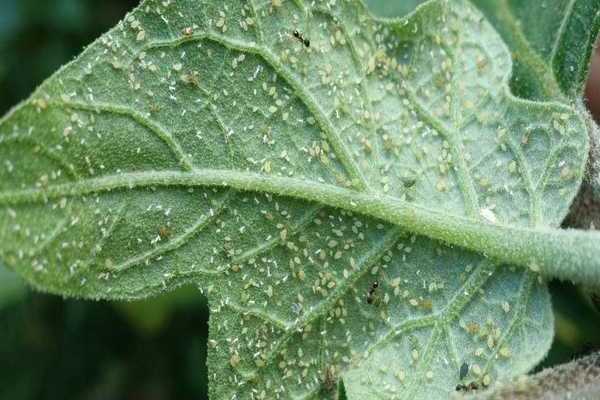
Determining whether your plant is affected or not is very simple. It is enough to look very closely at it, and you will notice the main signs, namely:
· Young plant stems are deformed, leaves curl;
· The leaves become sticky, as the aphid secretes honeydew in the process of growth;
· On the underside of the leaf there are small midges and their eggs, this is aphid;
· Ants crawl all over the plant, as they carry aphids from plant to plant, and instead feed on their sweet secret.
Reasons for infection
· Soil contaminated with aphid eggs;
· High temperatures both day and night;
· High humidity around the roots.
Ways to combat aphids
Folk - used mainly for the prevention of infection, or in the early stages, when the aphid has not yet had time to multiply.
Chemical - used if folk remedies do not help or the plant is heavily infected.
Biological - less toxic than chemicals. These products are made from plants.
Folk methods of struggle
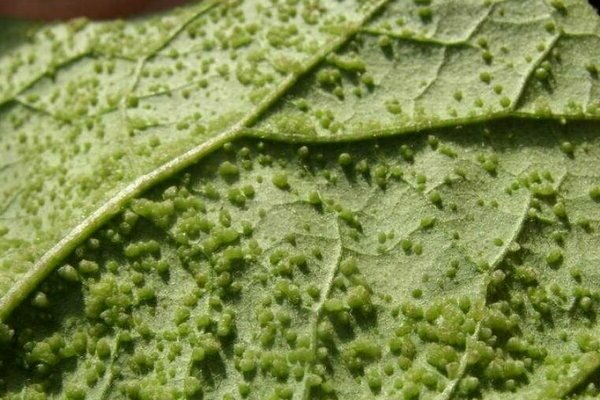
1. A solution made from laundry or tar soap. For the solution, take a tablespoon of finely chopped soap and dissolve it in one liter of water. Then the solution is infused for several hours until the soap is completely dissolved. All plants are processed, and most carefully the lower side of the leaf.
2. Table vinegar. Its pungent smell repels these insects. For a solution, 200 ml of vinegar is diluted in 10 liters of water. Spray on plants for three weeks, every three days.
Also, because of the pungent odor, you can use ammonia. Dilute 10 ml of ammonia in one bucket of water.
3. Garlic and onion infusion. To prepare it, you will need one onion and two heads of garlic. Cut everything into small pieces and add half a liter of water and one tablespoon of baby shampoo or soap. The infusion is allowed to stand for several hours and can be processed.
4. Hot pepper. Dilute 100 grams of pepper in ten liters of water. Let it brew for two to three days. Process the plants three to four times. Several days should pass between treatments.
5. Wood ash. Sift the ashes and sprinkle the root zone of the plant.You can also prepare a spray solution. Dilute 300 grams of ash in 10 liters of water.
6. Tobacco. Pour two hundred grams of leaves in five liters of water and insist for a day.
7. Broth from the tops of tomato, tansy, wormwood. The tops are poured with water and boiled for about an hour. Then the resulting broth is diluted with water before processing. One glass of broth is diluted with 800 ml of water.
8. Infusion of celandine. The celandine is finely chopped, water and soap shavings are added. Insist 2-3 hours, and then the plants are treated.
The folk method for combating aphids must be used several times, alternating them with each other, so that the aphid is not used to the means.
Chemical control methods
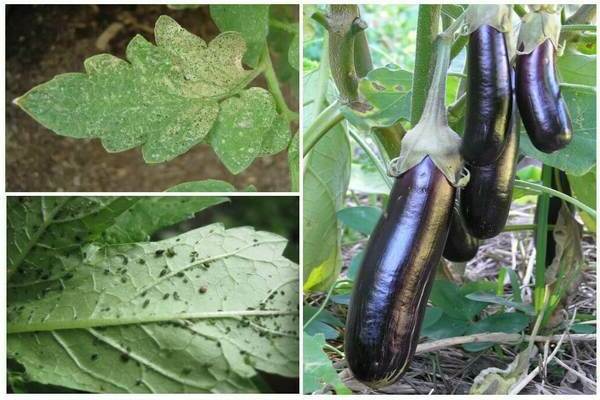
This implies the use of chemicals to kill insect pests. All chemicals are used according to the instructions, in strict proportions and concentrations. Observe security measures. Insecticides are used only in the early stages of the growing season, when planting seedlings. You cannot use them later. The following chemicals are most common:
1. Intavir. This drug contains a natural poison - cypermethrin, obtained synthetically. In nature, this poison is found in chamomiles, tansy, chrysanthemum. Planting these plants next to eggplants can help protect them from aphids. The plant is treated with the agent twice for a week break.
2. Aktara. The ampoule of the drug is diluted in ten liters of water. The infected plants are treated twice. Since the product is very toxic, it is imperative to wear protective equipment when using it.
3. Karbofos. Dissolve one tablespoon of the product in 10 liters of water. Plants are sprayed with the solution several times at intervals of two to three weeks.
4. Fufanon. Ampoule of 5 ml, diluted in 2 liters of water.
Aphids on eggplants: biological control methods
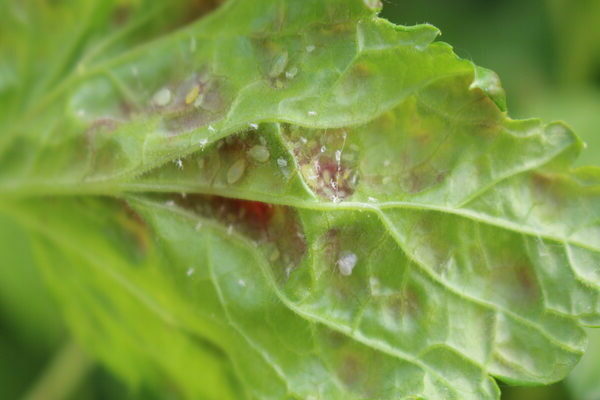
1. The use of biological products.
Fitoverm-M. One ampoule with a volume of 2 ml is diluted in four liters of water. This drug helps to fight not only aphids, but also ticks, caterpillars, thrips.
Akarin. For the solution, take 2 ml of the drug and dilute it in 4 liters of water.
2. Attracting natural enemies of aphids to the garden, namely ladybirds, lacewings, ground beetles, hoverflies.
All methods must be applied at their summer cottage. They do not need to be used in an apartment or house, especially chemicals. Traditional methods do the least harm to the plants themselves, which is why they are most often used. To attract, flowers are planted on the plots that attract these insects. For example, hoverflies like the scent of daisies and fennel, ground beetles like the scent of nightshade plants, lacewings are attracted to ferns.
In addition to insects, birds, for example, tits, sparrows, warblers, etc. readily feed on aphids. To attract them to the site, you can make a birdhouse.
Aphids on eggplant: prevention methods
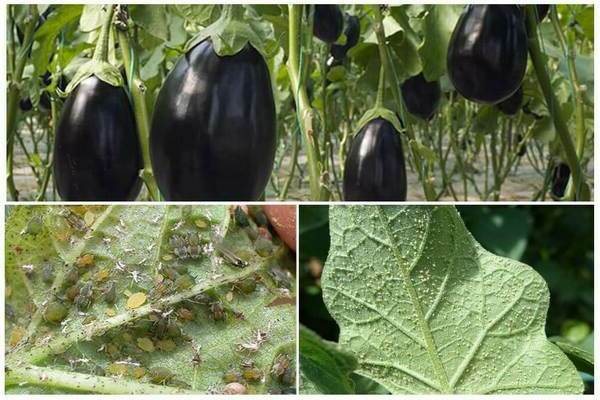
1. Constant inspection of plants in order to identify the first signs of the appearance of these insects and immediately take measures to exterminate them.
2. Use high-quality, disinfected soil for planting eggplants.
3. Planting aphid repellent plants. Onions, garlic, methu, lavender, basil, fennel and others.
If you follow all the rules for growing eggplant and deal with its pests in time, you can get a high-quality and rich harvest.

